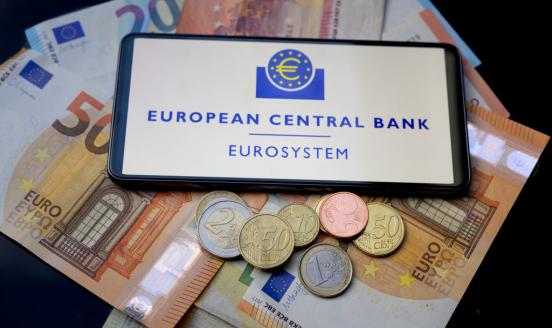Cryptocurrencies and monetary policy
Can cryptocurrencies acquire the role of money? And what are the implications for central banks and monetary policy? Read the policy contribution to u

This policy contribution was prepared for the Committee on Economic and Monetary Affairs of the European Parliament (ECON) as an input for the Monetary Dialogue of 9 July 2018 between ECON and the President of the ECB. The original paper is available on the European Parliament’s webpage (here). Copyright remains with the European Parliament at all times.
This Policy Contribution tries to answer two main questions: can cryptocurrencies acquire the role of money? And what are the implications for central banks and monetary policy?
Money is a social institution that serves as a unit of account, a medium of exchange and a store of value. With the emergence of decentralised ledger technology (DLT), cryptocurrencies represent a new form of money: privately issued, digital and enabling peer-to-peer transactions.
Historically, currencies fulfil their main functions successfully when their value is stable and their user network sufficiently large. So far, cryptocurrencies are arguably falling short against these criteria. They resemble speculative assets rather than money. Primarily this is because of their inherent volatility, which is the by-product of their inelastic supply, and which limits their widespread use as a medium of exchange.
Cryptocurrency protocols could theoretically evolve to limit their volatility and correct their current deficiencies. If successful, this could lead to an increase in their popularity as an alternative to official currencies. A successful alternative to official currencies could put pressure on those who manage official currencies to provide better policies.
But the widespread substitution of central bank currency for cryptocurrencies would effectively create parallel currencies. This by itself could create risks to the effectiveness of monetary policy, to financial stability and ultimately to growth.
Nevertheless, the risks of cryptocurrencies becoming serious contenders remain small as long as fiat currencies issued by the world’s major central banks continue to deliver effectively the three traditional functions of money. It would take a deep crisis of trust in official currencies for their widespread substitution by cryptocurrencies to materialise.
For cryptocurrencies to replace official currencies they would have to overcome a triple challenge. First, the supply of cryptocurrency would need to act as an instrument (or identify a different instrument) that affects the economy. Second, in the presence of fractional reserve banking, the supply would need to respond to liquidity crises and act as a lender of last resort in order to safeguard financial stability. Third, there would need to be a system of checks and balances to keep the agent, ie the cryptocurrency issuer, accountable to the principal, ie society, which is not possible because cryptocurrencies are automatically and privately-issued. For these reasons, official currencies controlled by inflation-targeting independent central banks still appear to be a far superior technology than cryptocurrencies to provide the money functions.



